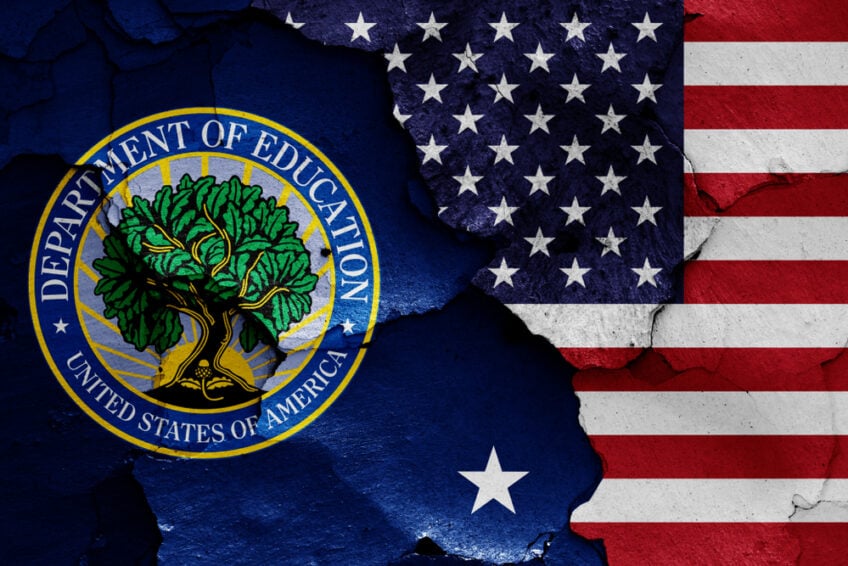U.S. Department of Education Announces Plan to Shift Major Programs to Other Agencies
The states are eager and ready to take the lead in education policy once again.
The U.S. Department of Education (DOE) announced that they have signed major interagency agreements with the Departments of State, Labor, Interior, and Health & Human Services to begin offloading various DOE programs. The agreements mark the most significant effort yet to fulfill President Trump’s March 20th executive order aimed at dissolving the department and returning education authority to the states, where it rightfully belongs.
The changes announced today include:
- Elementary and secondary education programs moving to the Department of Labor
- Postsecondary education programs (not including the student loan portfolio) moving to the Department of Labor
- Indian education programs moving to the Interior Department
- International education and foreign language programs moving to the State Department
- Child Care Access Means Parents in Schools (CCAMPIS) and foreign medical accreditation programs moving to the Department of Health & Human Services
In a recent op-ed, Secretary Linda McMahon noted that the recent federal shutdown has bolstered the department’s efforts, saying “The 43-day shutdown, which came smack in the middle of the fall semester, showed every family how unnecessary the federal education bureaucracy is to their children’s education. Students kept going to class. Teachers continued to get paid. There were no disruptions in sports seasons or bus routes.” This is because states are the ones responsible for ensuring that every American child receives a quality education, and as such, they should be the ones leading the way when it comes to education policy.
And led they have. Since 2021, 17 states have created new education freedom programs that allow any student in the state to participate. These programs empower families by ensuring that state education dollars are tied to students, not systems, and recognizing that there is no such thing as a “one-size-fits-all” education system. While some students will learn best in their local public school, others may learn best in a home school, micro school, charter school, private school, virtual school, or other learning environment. States recognize that there is a wide variety of educational options to choose from today, and parents should always be empowered to make that choice for their child.
ALEC strongly supports the federal government’s efforts to streamline these programs and completely dissolve power from the Department of Education. Earlier this year, our Education & Workforce Development Task Force voted to adopt the Resolution Supporting Devolution of Power from the U.S. Department of Education to the States, which lawmakers can introduce in upcoming legislative sessions as a show of support. We have also launched a letter of support for these efforts and are encouraging all ALEC members to sign on.
As Secretary McMahon has noted, today’s announcement is just the beginning of federal efforts to streamline programs and dissolve the federal education bureaucracy. The states are eager and ready to take the lead in education policy once again.

